Sir Bobby Robson: 6 of His Best Moments During a Truly Magnificent Managerial Career
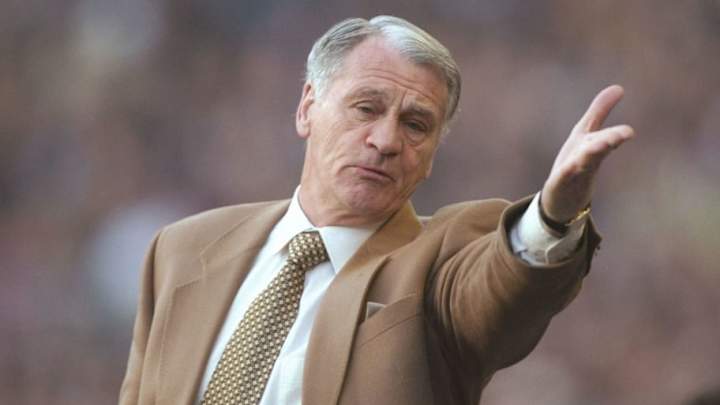
It's been ten years since we lost one of the greatest English football managers of all time; Sir Bobby Robson.
By all accounts, Robson was not just a remarkably talented motivator and coach, but also a thoroughly caring and genuine family man who carved out a remarkable career in the game - leaving an everlasting legacy.
First enjoying a successful time as a player, in which he was even capped 20 times for England, Robson then moved on to oversee a storied managerial career, which saw him travel all over Europe.
Forever in our thoughts ❤️
— England (@England) July 31, 2019
It's ten years since the much-loved Sir Bobby Robson, who won 20 caps as a player and managed the #ThreeLions from 1982 to 1990, sadly passed away. We all miss you, Sir Bobby. pic.twitter.com/ew9oopKpdk
Sir Bobby achieved so much that's it hard to whittle down his best moments to just a few - but we here at 90min have picked out six things from his managerial career that live long in the memory for many.
Let's take a peak at what this great man was able to do...
FA Cup Winner at Ipswich
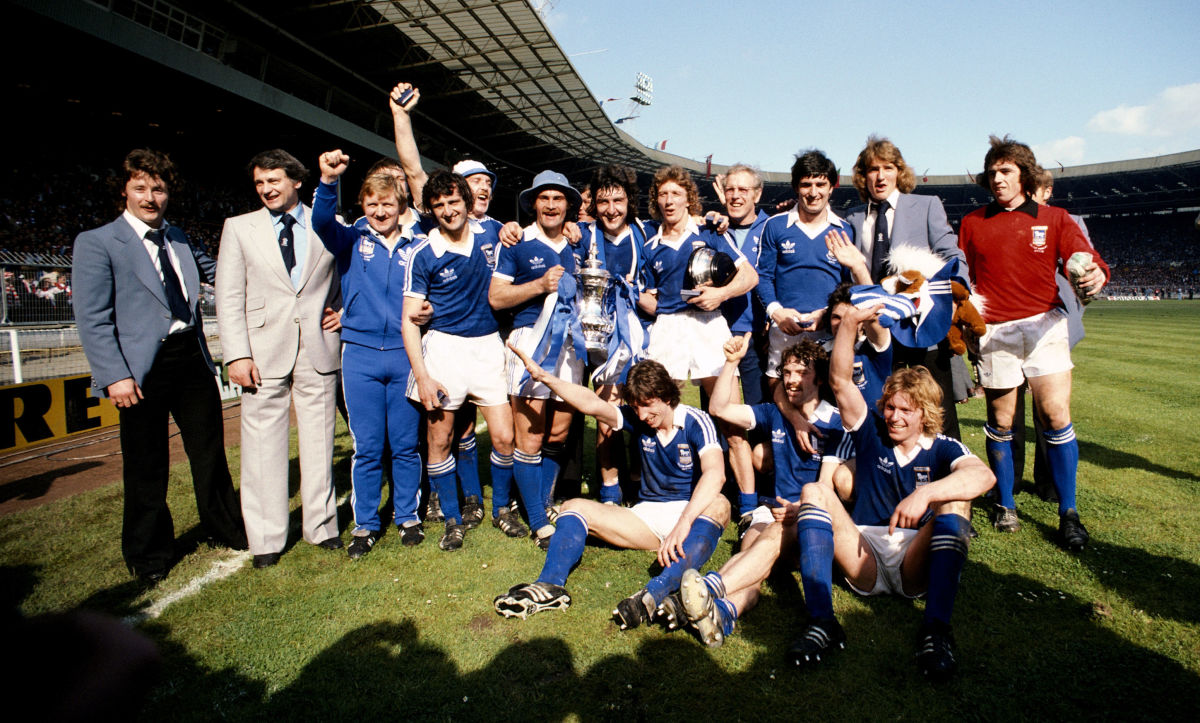
After a solitary season in charge of Fulhum in 1968, Robson was landed the Ipswich Town job in 1969.
During a memorable 13 years in Suffolk, he transformed the Tractor Boys from a mediocre and unfashionable mid-table side into a team that consistently finished at the right end of the First Division table.
One of the highlights of Robson's spell in charge was the Blues' memorable FA Cup final victory over the darlings of English football: Arsenal, in 1978.
🗣 "Thank you for this magnificent presentation and for giving me one of the greatest evenings of my live."
— IPSWICH TOWN (@IpswichTown) July 31, 2019
2007's @BBCSPOTY Lifetime Achievement Award winner - Sir Bobby Robson. 💙 #itfc pic.twitter.com/3zDJQGKG90
This Arsenal team contained the likes of Liam Brady, David O'Leary and Malcolm McDonald, so of course the Tractor Boys were billed as massive underdogs. Ipswich, nonetheless, controlled the game, with Roger Osborne sweeping in a rebound in the 78th minute, to ensure that the FA Cup would be travelling back to Portman Road.
The wild celebrations instigated by this goal were enough to make Osborne faint, and the midfielder was immediately substituted, even having to be resuscitated with smelling salts! It's certainly one way to celebrate a goal.
UEFA Cup Winner
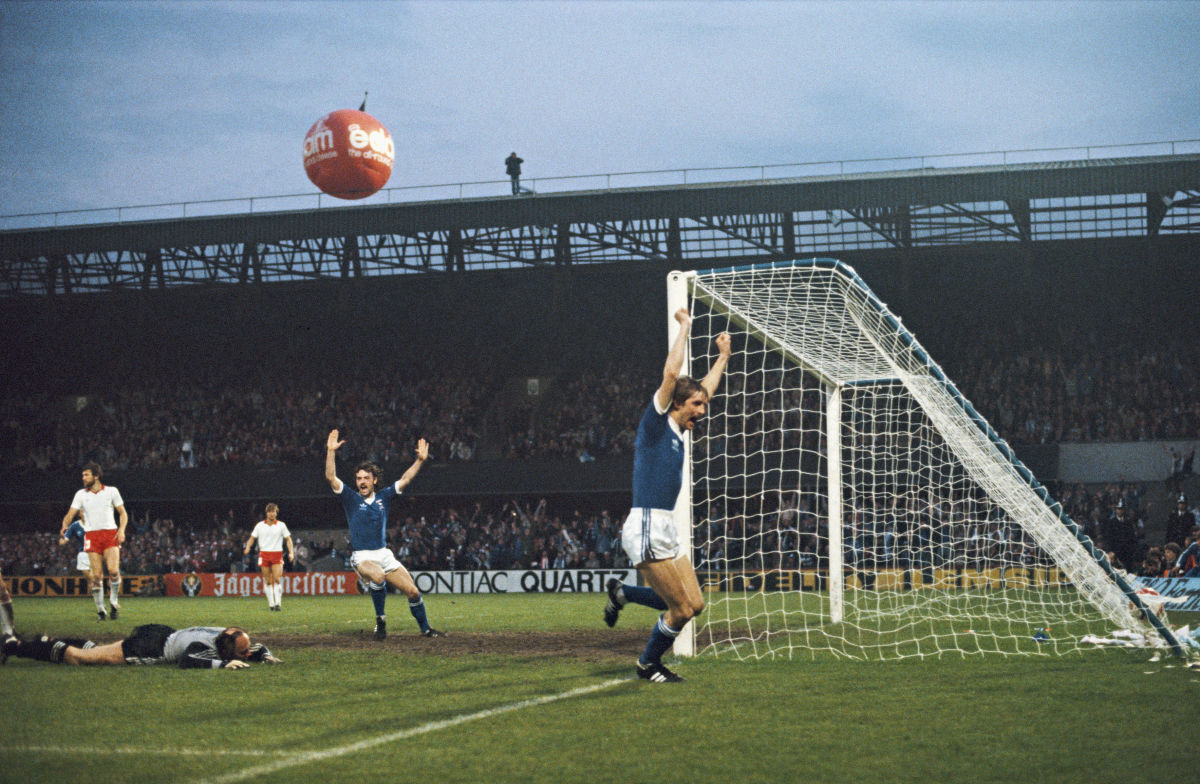
Although besting Arsenal in the FA Cup final was a remarkable achievement, the pinnacle of Ipswich success under Robson would come three years later.
Finishing third during the 1979/1980 season secured the Tractor Boys a place in the UEFA Cup, second to only the European Cup as the continent's premier cup competition.
In a team containing a host of Ipswich youth team graduates, such as Terry Butcher, John Wark and Alan Brazil, the Blues fought their way to the final where they faced Dutch side AZ Alkmaar.
On this day 1981: Sir Bobby Robson gives John Wark some tactical advice during Ipswich Town's UEFA Cup final win over AZ 67. pic.twitter.com/YVa7eN7sZv
— Balderdash (@notDcfcBoss) May 20, 2019
Contested over two legs, Ipswich won the first game 3-0 in front of a capacity crowd at Portman Road, before almost throwing it all away in the second leg by losing 4-2.
The team who won the UEFA Cup remain Ipswich legends, but the man held in highest esteem for these heroics is the person who crafted this odds-defying side - the one and only Sir Bobby.
Italia '90

Robson's remarkable achievements at Ipswich had long been attracting the attention of the FA, and following England's exit from the 1982 World Cup under Ron Greenwood, he was offered the job of national team manager.
Though it is often airbrushed out of popular memory, Robson's time at England was not always entirely successful. Failures to qualify for the 1984 European Championships and crashing out in the group stage of the same tournament four years later, saw Robson offer his resignation on two occasions.
28 years ago today Bobby Robson consoles a tearful Gazza at Italia 90.
— A Funny Old Game (@sid_lambert) July 4, 2018
Manager, mentor, man of the people. We miss you, Gaffer...pic.twitter.com/1PFVDqX8OQ
The FA rejected it both times, allegedly due to their disdain for Robson's likely replacement: Brian Clough, and were rewarded for their loyalty during the 1990 World Cup.
England's run to the semi-final in 1990 is still revered by football fans across the country, and only a devastating penalty-shoot-out loss to the West Germans (shock), prevented Robson from managing in the World Cup final.
The game left an indelible mark on him for the rest of his life, but without Bobby's composed and caring management style, it is unlikely England would have even made the semi-final in the first place.
Resurrecting FC Porto
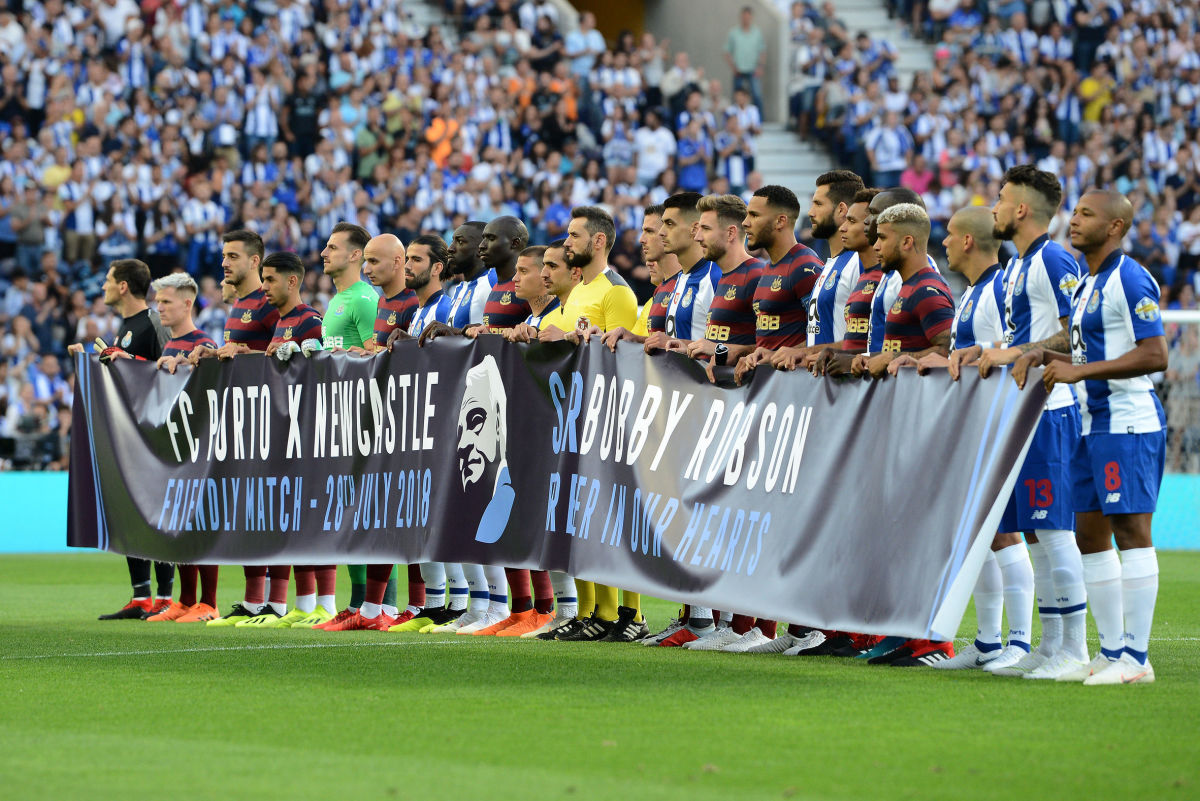
After resigning as England manager, Robson tried his hand at managing on the continent. Spells at PSV Eindhoven and Sporting CP followed Italia 90, before he found himself managing Sporting's rivals, FC Porto.
He took over with the the Dragons in a dire state. Attendances had dropped to just 10,000 in the first half of the 1993/1994 season and Benfica looked set to win the league.
However, after Robson arrived in January 1994, Porto underwent a dramatic transformation, finishing just two points behind Benfica in second, reaching the Champions League semi-final and even besting Sporting in the final of the Taça de Portugal.
Remembering @FCPorto legend Sir Bobby Robson, who passed away 10 years ago today 💙
— OneFootball HQ (@OneFootballHQ) July 31, 2019
Forever in our thoughts 🙏 pic.twitter.com/pyZN7xVIM6
In Robson first full season at the club, Porto would win the league, and would then go on to win another title the season after that.
The incredible turnaround that Robson presided over is made even impressive when you consider that he was suffering from significant health issues at the time, succumbing to a bad case of malignant melanoma during the 1995/1996 season.
The mental fortitude that must have been required to persevere through this testing period was testament to Robson's character as a man, as well as a football manager.
Signing Ronaldo for FC Barcelona
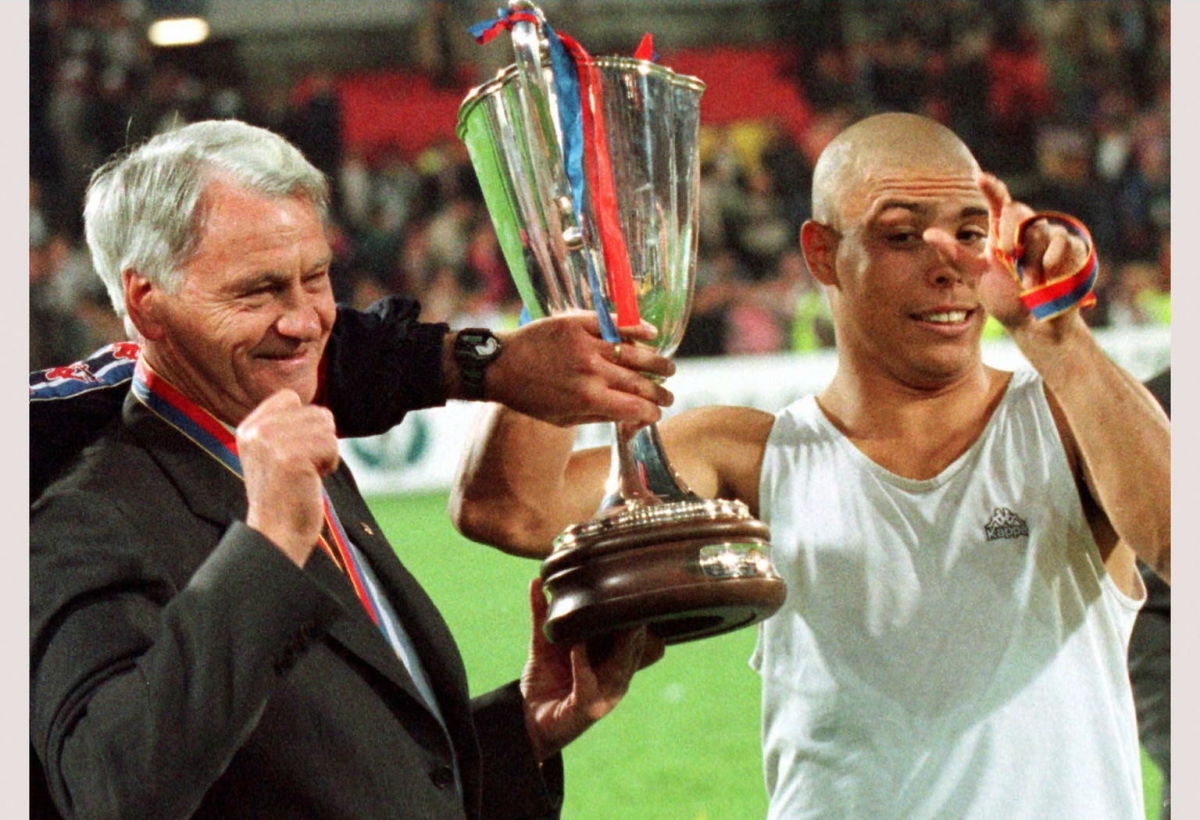
During his sole season at Barcelona, Robson enjoyed a fair amount of success. Though the La Liga title continued to evade the Catalan giants, Sir Bobby did manage to secure both a Copa del Rey and a UEFA Cup Winners' Cup medal.
But his most inspired action of the season was to convince the Barcelona board to part with a world record fee of £13.5m, in order to bring Ronaldo to the club.
Jose Mourinho, Bobby Robson and Ronaldo. pic.twitter.com/b62Lq8Uqvn
— 90s Football (@90sfootball) March 12, 2018
The Brazilian had been highly impressive during a two-year stint at PSV Eindhoven, scoring a ridiculous 51 goals in 54 games - but under Robson, the striker was at his very very best. Just 20-years-old when Barcelona signed him, he was expertly managed by Robson, resulting in Ronaldo producing the form of his career.
In peak physical condition, the youngest ever FIFA World Player of the Year scored 47 goals in all competitions, justifying Robson's faith in him. What a shame that the pair would only have one season working together as Sir Bobby would be moved in a general manager's role, whilst Ronaldo would depart for Inter the following campaign.
Turning Things Around at His Beloved Newcastle
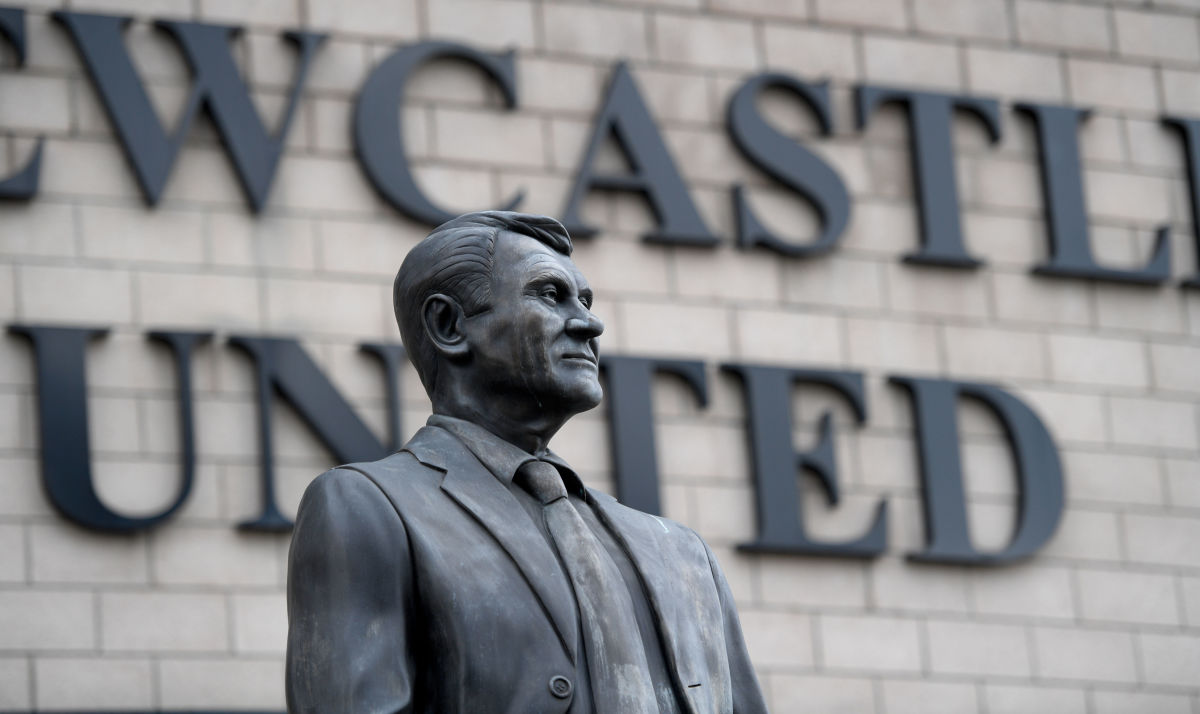
There is a statute outside of St James Park of Sir Bobby Robson for a reason. After a brief return to PSV for the 1998/1999 season, Robson took over at Newcastle following the resignation of Ruud Gullit in September 1999.
His reign began with the Magpies marooned at the foot of the table, but like at FC Porto, Sir Bobby would oversee an incredible turnaround, turning United into a side equipped for continental football almost immediately.
His opening game in charge was a 8-0 victory over Sheffield Wednesday and things would continue to improve from there with Newcastle eventually finishing 11th and well clear of relegation during Robson's first season.
Ten years ago today, Sir Bobby Robson sadly passed away at the age of 76.
— Newcastle United FC (@NUFC) July 31, 2019
One of football's greatest managers and a wonderful gentleman who transcended the beautiful game. ❤️ #NUFC pic.twitter.com/vw6bwEXmDR
Over the next few years, Sir Bobby would register a string of top six finishes, developing youngsters such as Jermaine Jenas, Kieron Dyer and Aaron Hughes in the process.
Robson would eventually be dismissed in August 2004 following a falling out with chairman Freddy Shepherd, but Magpies' fans continue to hold him in the highest regard. He was even gifted the freedom of the city in 2005.
